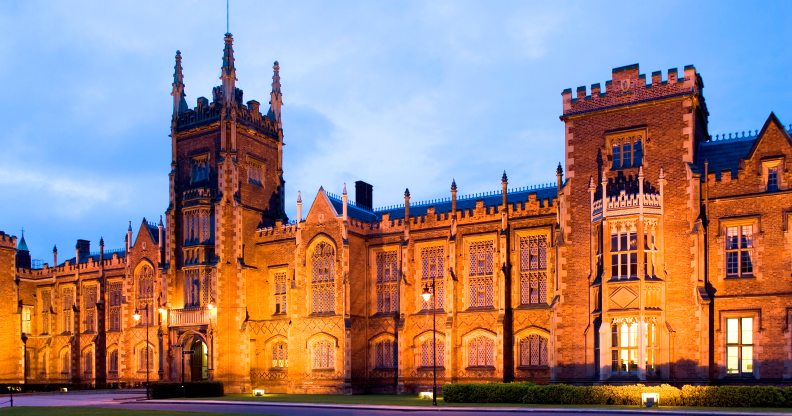Calls for Queen’s University Belfast to apologise for ‘corrective’ anti-gay shock therapy

Queen’s University Belfast. (Marka/Universal Images Group via Getty)
A Queen’s University Belfast (QUB) academic has called for the university to apologise for its historical involvement in “corrective” shock therapy for gay people.
It was revealed this year that a man was subjected to so-called “aversion therapy” at QUB, in which he was shown photos of naked men and given electric shocks when aroused to “cure” his homosexuality.
The “therapy” took place in the university’s mental health department in the late 1960s and early 1970s.
The university said in a statement at the time that they regretted the use of such aversion shock therapy and said there is “no scientific support” for it.
But according to the BBC, Phil Scraton, an emeritus professor in the school of law, said that the statement was “insufficient”, and that the institution should release more information and make a public apology.
He said: “It should reveal the scope and detail of all experiments conducted whether or not they involved electric shocks.
“While the university today should not be held accountable for historic failings, it should make a full public apology.
“Queen’s and any other organisations involved should identify the inter-departmental scope and longevity of the research projects, their ethical approval and their financing.”
Scraton added that it was understandable that LGBT+ people at the time would have sought out “corrective” therapies.
He continued: “Rejected by schools, churches, medical services and, often, their families as having a pathological disorder, they suffered considerable personal duress.
“In this hostile climate it was understandable that they accepted the offer of ‘corrective treatment’ from psychologists and psychiatrists whose research appears to have been founded on beliefs and ideology rather than science.
“In this context Queen’s, among other universities, administered electric shocks as one form, among others, of experimental corrective intervention.
“Given that some participants are still alive it is appropriate that they hear a public apology alongside disclosure of the methods used and their justification at the time.”
In response, a QUB spokesperson said in a statement to the BBC: “The university has no records of this therapy taking place here or elsewhere on the university’s behalf. Research data from this era were not kept for more than 15 years.
“The university regrets that this method was ever used by any organisation in any situation.”

